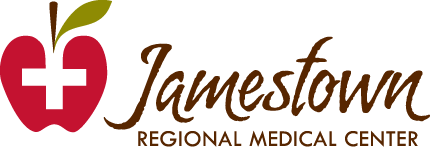Editor’s note: Dr. Kayla Emter, podiatrist/foot & ankle surgeon at Jamestown Regional Medical Center, shares tips on healthy foods to eat while you recover. As a student, Dr. Emter struggled with painful bunions, which required surgery. Form that experience, she wanted a career in the medical field so she could educate and help others. Today, Dr. Emter is qualified through the American Board of Foot & Ankle Surgeons, American College of Foot & Ankle Surgeons and the American Podiatric Medical Association.
Nutrition’s role in recovery and healing is often overlooked.
Our diets affect the length of healing time. Here are some foods to incorporate into your diet after surgery or an injury:
- Vitamin C will help promote healing and helps with collagen formation that helps with skin and soft tissue healing. Vitamin A is also important in soft tissue repair.
- Proteins are broken down into tiny building blocks called amino acids, which are essential for tissue repair. Consider lean proteins such as eggs, fish, turkey and legumes rather than all red meat. We can’t deny that we North Dakotans do love a good steak!
- Fiber is also important, especially during the post-op period in which you may be taking pain medication and won’t be as active. Fiber adds bulk to our diet and keeps us regular. Constipation after surgery can be a reason for elevated body temperature and discomfort.
- Water helps flush anesthesia out of the system, lessens fatigue and nausea and helps keep us regular.
- Probiotics. Occasionally, antibiotics are prescribed to be taken after surgery to prevent infection or help treat an underlying infection. Antibiotics can wipe out the helpful bacteria in our gut causing further issues such as diarrhea. Eating yogurt or taking a probiotic can help prevent such problems.
- Vitamin D & calcium. These two are essential to bone health, strength and repair.
Adding some foods to our diet aids in recovery. Omitting some foods can help as well.
- Junk food. Sugar, fried foods, saturated fats and artificial additives can cause inflammation. Inflammation slows the healing process.
- Diabetics have special needs. Diabetics must monitor blood sugar following surgery. Blood sugars above 200 will significantly slow tissue repair.
It is convenient to have a stash of junk food where you plan to recover after surgery. However, this allows for constant snacking that can ultimately hinder healing. Above are healthier alternatives that may assist in the healing process, though it might require a couple more trips to the fridge. Another option is to meal plan and prepare healthy meals prior to surgery and recovery. This allows you to focus more on healing.
“People still have medical needs and we understand that,” said Mike Delfs, JRMC President & CEO. “We’re still here. We don’t want people to remain at home if they need care.”
JRMC providers assess the needs and risks of each patient before the visit to see if it’s appropriate to schedule a visit now or wait. Each patient is screened for symptoms over the phone and before entering the building.
“We continue to offer this care because sometimes the risk of waiting outweighs the risks of keeping the appointment,” Delfs said. “One individual received a test in radiology, for example. It turned out, this person had a mass that our providers surgically removed. That person didn’t have months to wait. And that’s why we continue to offer appointments. We are here for this community.”
Know that studies show care is better close to home. Jamestown area residents don’t need to travel for specialty services. If you or someone you love needs relief, contact the JRMC Clinic at (701) 952-4878. Free injury screenings are always available so families can understand treatment options. Schedule a free screening at (701) 952-4800.
[caldera_form id=”CF5a319270dac93″]

